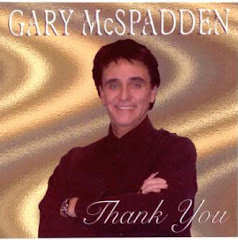Mike Hyatt blogging on the life in land of readers makes some fascinating points. As always, every writer has an audience but must define themselves, their work and their message, so that their audience can fine them.
http://ow.ly/ee7D
I am endlessly surprised by what works and what doesn’t, especially when it comes to publishing.
I experience this first-hand when it comes to my blog.
Sometimes I write a post and think, This is going to get huge traffic. Then I post it and watch in disbelief as people collectively shrug their shoulders and ignore it.Then I can throw something together on a whim, post it within minutes, and—bam!—my traffic goes through the roof.
For example, on Saturday, my daughter, Megan, told me about a great quote from P. J. O’Rourke on how easy it is to get distracted when you are writing. I Googled it and finally found the quote:
Usually, writers will do anything to avoid writing. For instance, the previous sentence was written at one o’clock this afternoon. It is now a quarter to four. I have spent the past two hours and forty-five minutes sorting my neckties by width, looking up the word “paisly” in three dictionaries, attempting to find the town of that name on The New York Times Atlas of the World map of Scotland, sorting my reference books by width, trying to get the bookcase to stop wobbling by stuffing a matchbook cover under its corner, dialing the telephone number on the matchbook cover to see if I should take computer courses at night, looking at the computer ads in the newspaper and deciding to buy a computer because writing seems to be so difficult on my old Remington, reading an interesting article on sorghum farming in Uruguay that was in the newspaper next to the computer ads, cutting that and other interesting articles out of the newspaper, sorting—by width—all the interesting articles I’ve cut out of newspapers recently, fastening them neatly together with paper clips and making a very attractive paper clip necklace and bracelet set, which I will present to my girlfriend as soon as she comes home from the three-hour low-impact aerobic workout that I made her go to so I could have some time alone to write.”
I read it aloud to Gail, and we both were laughing so hard we could barely get through the whole thing. It so perfectly expressed the week I had had and the challenge of writing.
So, I thought, Great. This is worth sharing this with other writers. I decided to post it in the Resources section of my blog. This took me about three minutes. Then I tweeted about it, so people could find it. (Posts in my Resource section don’t appear in my usual RSS feed.)
Little did I know how popular it would be. On Saturday, 3,053 people read that little post. On Sunday, 4,345 people read it. Conversely, some of the posts I spend the most time on have the poorest readership. I don’t get it.
The bottom line is that there is no necessary correlation between what I think will be popular and what actually is popular. The only way you can tell is by experimenting. (This, by the way, is why every author should have a blog. It is a sort of lab where authors can figure out what works and what doesn’t.)
That’s also true with book publishing. So often, the books that we think will be big bestsellers (and pay big royalty advances on) aren’t. They tank—or at least don’t achieve what we hope they will. Why? Because people just aren’t interested, no matter how much we hype the book or spend on promotion.
Similarly, some books that we anticipate will have modest sales completely blow us away. The Traveler’s Gift by Andy Andrews, Wild at Heart by John Eldredge, Blue Like Jazz by Donald Miller, and Same Kind of Different as Me by Ron Hall and Denver Moore were all surprise hits—and continue to sell well to this day.
The moral of the story? Knowing what the public will respond to is still shrouded in mystery. If we could reduce it to a simple algorithm, we would. Then we could only publish the bestsellers. But, alas, this is not possible.
So instead, we try to learn from the past, listen to our gut, and publish the best content we can. In the end, publishing is a humbling reminder that none of us can determine with absolute certainty what will work and what won’t. Relatively speaking, the readers are still sovereign and we would do well to respect that fact.
Get Diversity in Your Communication Skills
4 days ago








No comments:
Post a Comment